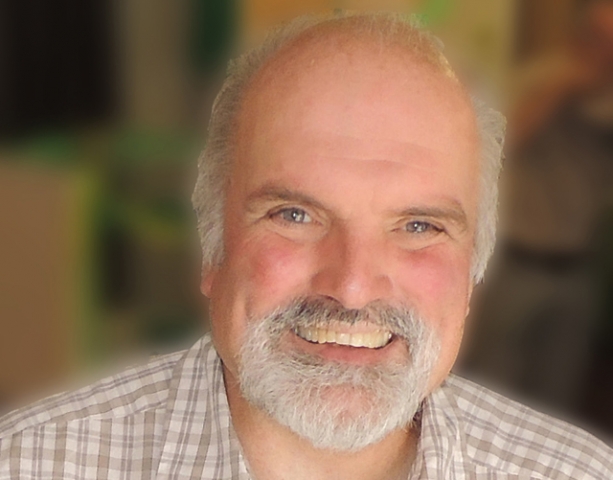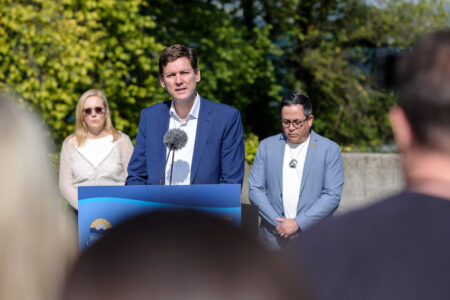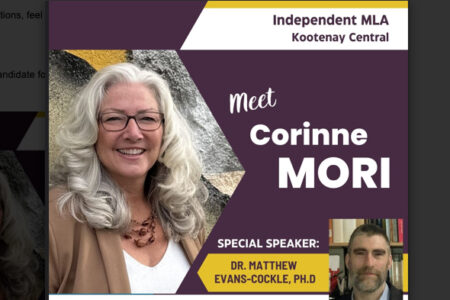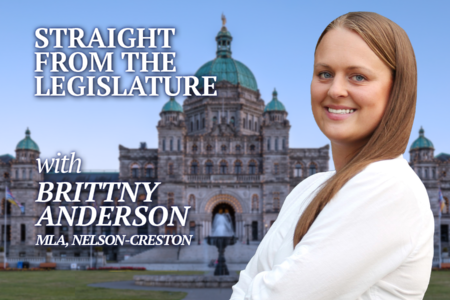Bill Green of Green Party — Agent of change in Parliament
On Monday, October 19, Canadians will go to the polls to elect members to the House of Commons in the 42nd General Election.
One of the new ridings in that election is Kootenay/Columbia, where four candidates — Bill Green of the Green Party, Liberal candidate Don Johnston, Wayne Stetski of the NDP and Christina Yahn of the Libertarian Party — are trying to unseat incumbent David Wilks of the ruling Conservative Party.
To help voters in the Kootenay/Columbia riding make their decision, The Nelson Daily reporter Tim Schafer has interviewed the candidates to ask them their thoughts on the upcoming election.
Today, Schafer speaks with Bill Green of the Green Party.
Bill Green has lived in Kimberley for two decades, and is deeply connected to both the community and the region — to the strong and caring communities, as well as the stunning environment including the Purcell, Selkirk and Rocky mountains, the Rocky Mountain trench and Kootenay Lake.
Green’s most powerful and formative experiences include: doing mining exploration and biological mapping in the Northwest Territories and (what is now) Nunavut, living, working and recreating in the outdoors, teaching high school science and doing environmental planning work in Papua New Guinea and, of course, meeting and marrying Helen and having four wonderful children: Lars, Hanna, Nadine and Stefan.
Green, 63, has always been drawn to water, fish and aquatic ecosystems, both for recreation and for work.
“I love water and mountains, thus our move to Kimberley and the Kootenays in 1994,” he said.
He has worked passionately on protecting and caring for aquatic ecosystems since the mid-1970s: in Papua New Guinea, on the west coast of Vancouver Island (Nuu-chah-nulth Tribal Council) and, since 1994 in the Columbia-Kootenay region as director of the Canadian Columbia River Inter-tribal Fisheries Commission (Ktunaxa and Secwepemc Nations).
Green feels deeply indebted to the First Nations that he has worked for since the 1980s, as he has learned from them about different ways of relating to and understanding the natural world.
“I have learned so much by working for First Nations government, and the learning curve remains steep,” he said.
From 1981 to 1988 Green was a partner in a small, Port Alberni-based consulting firm specializing in community economic development and community-based resource management.
He worked throughout B.C. on business feasibility studies and business plans for local governments, port authorities and First Nations, in addition to his work in resource management.
“I love the Kootenays for the people and the recreational opportunities: cross-country and backcountry skiing; hiking; climbing; canoeing; sailing and biking,” he said.
Green has been involved in Kimberley and regional community organizations for many years, including coaching and managing a junior cross-country ski team and volunteering with local outdoor and nature-oriented organizations.
— Source: Green Party of Canada
What do you see as the major issue federally in this election that you can address?
The major issue at the federal level is energy, jobs and the economy, which are inextricably linked. We need to start building the economy of the future rather than attempting to support a dying fossil fuel-based economy.
Investment is the key to building the economy and jobs of the future.
Most of this investment will necessarily come from the private sector — that is how our economy works. The job of the federal government is to provide the right tax and other incentives so that private sector investments are directed where we as a society need to go.
The Green Party will work to create incentives for the economy and jobs of the future, effectively address climate change and support renewable energy development through the Carbon Fee and Dividend system. The system will be national in scope but will be developed in collaboration with the provinces.
The Carbon Fee and Dividend system involves a fair and equal fee paid at the point of extraction for all carbon sources.
The fee will start at $50 per tonne per year and will increase by $10 per tonne every year until carbon emissions are reduced to 10 per cent of 1990 levels.
All of the revenue will be returned to Canadians as a dividend — an equal per capita share of the carbon revenues. Investors and industry will have the certainty they need to make wise investment decisions in the economy of the future.
We know that abundant opportunities for clean renewable energy exist, particularly in our riding. Development of clean energy requires private sector investment, plus technological innovation and skilled workers.
The Green Party will address these needs through the Canadian Sustainable Generations Fund, financed by returning income tax rates for large corporations to 2009 levels.
Because of the fundamental importance of the small business sector, we will advocate for retaining the current, low small business tax rate and we will carefully assess the impacts of any new laws and policies on small business.
What do you see as some of the major issues locally that can be addressed?
As I travel through the riding, most voters are telling me they want change. They want a government that will work with our communities to transform the economy and create a diverse array of lasting jobs right here in Kootenay-Columbia.
The technology exists to build our economy around clean energy sources, careful renewable resource use, local value-added processing, and innovation.
Renewable energy, for example, creates 15 jobs with a $1 million investment. The same money invested in fossil fuels creates only two jobs. We will also invest in green infrastructure renewal at the local level and on a national scale.
Here are a few Green proposals that apply specifically to Kootenay-Columbia:
- Create a Sustainable Generations Fund to invest in skills training, education, energy efficiency, renewables, and emerging technologies. Funds will be invested in Canadian jobs, education, infrastructure, small business and communities. Investments will complement targeted national infrastructure investments in energy efficiency, renewable energy production, digital upgrades, clean-tech manufacturing, tourism, the creative economy and emerging technologies.
- Abolish tuition fees for college and university education.
- Partner with First Nations for truly responsible resource development in the long-term public interest.
- Ensure Canadian small business owners and entrepreneurs have access to the funds they need to create local jobs and revitalize local economies.
- Fund community supported agriculture, farmers’ markets, small-scale farms and producers, wineries and microbreweries. Shift government-supported research away from biotechnology and energy-intensive farming and towards organic and sustainable food production.
With the West Kootenay region being a small, forgotten factor on the federal stage, how can you get more government grants and jobs flowing into our region?
When government works as it should, every region in Canada is treated equally, no region is forgotten. Grants and job-creation programs should be based on merit and need, not on political affiliation. Using government funds to stay in power or to win votes is morally wrong.
The Green Party will change our political culture. Green MPs will work across party lines to achieve the best solutions, the best results. Green MPs won’t allow partisan politics to get in the way of good ideas and needed action. It’s time for Canada’s political parties to cooperate and get on with the job of governing for all Canadians.
As your MP, my job is to have a thorough grasp of local issues and local solutions, and to present them clearly and effectively in Ottawa.
My job is to get results. I will work hard to meet frequently with local governments, industry and community organizations to understand the needs of the West Kootenay so I can advocate effectively for those needs.
If elected, how do you see one person making a difference if you are not a member of the governing party?
All the signs are pointing to a minority government, which could be a very good outcome for Canadians. We could have politicians who actually work together.
The Green Party would work to be the agent of change in Parliament, where MPs work for their constituents, and political parties focus on cooperation and collaboration. We could have a government that represents all of us, a government that brings us together to accomplish what we cannot accomplish alone.
Individual MPs can be incredibly effective, as has been demonstrated by Green Party leader Elizabeth May, elected MP for Saanich-Gulf Islands in 2011.
I will work to ensure that individuals and communities in Kootenay-Columbia can access the wide variety of programs that exist now, and those that will be developed through Green Party advocacy in Parliament.
What prompted you to want to step into the political arena?
I’m a long-time Green Party member and was the Green candidate for Kootenay-Columbia in 2011. I believe our Canadian democracy is in serious trouble. It’s time to restore true democracy and put the power where it belongs — in the hands of Canadians.
This involves establishing a proportional voting system and reforming the way that Parliament works, beginning by reducing the budget and power of the Prime Minister’s Office.
We need Members of Parliament who put the interests of constituents and Canada above party interests. As a Green MP, I will strive to find common ground with all other MPs and will work across party lines in the public interest.

























